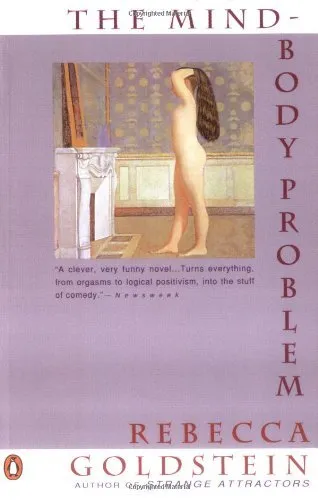
The Mind-Body Problem by Rebecca Goldstein is an excellent rendition of feelings of mattering, self-worth and acceptance and the sorrows of being a genius. This book contains a lot of information and even a short review would do it no justice. There are also a lot of interestingly funny and quotable philosophical statements such as
”
There it was once again: the ineradicable separateness of consciousness. The world he inhabits is his alone—with precious few of its details expressible in language and thus accessible to us Others. How I would have loved to slip into his world and see things as he does, to merge our two worlds like two drops of water. That would be to become one with him—for we are our worlds, just as Leibniz said. (But windowless?) Of course, one bumps into the metaphysical facts. How close can we get? One penetrates, the other is penetrated, but we never break through. Sex is a battle against metaphysics.
”
It is an elegantly written novel that explores the complexities of intelligence, impostorism, and Jewish identity. Set in Princeton during the 1980s, the book tells the story of Renee Feuer, a Jewish graduate student who feels out of place among her highly intelligent peers. Despite her impressive academic credentials, Renee struggles to adjust to the competitive environment at Princeton and begins to doubt her own intelligence. In an effort to regain her sense of worth and belonging, Renee begins sleeping with people she considers intelligent. This eventually leads to a relationship with Noam, a mathematician who is considered the most intelligent person in the world.
As Renee gets to know Noam, she begins to see the flaws in his character and the challenges that come with being in a relationship with someone who is considered a genius. Noam, for his part, is struggling with his own internal demons, including his inability to surpass his previous work on a revolutionary set of numbers called the Supernatural numbers. Despite their love for each other, Renee and Noam’s relationship is strained by the expectations and demands placed on them by their peers and society.
One of the strengths of “The Mind-Body Problem” is its nuanced portrayal of geniuses as complex and flawed human beings. Instead of depicting geniuses as perfectly functioning machines, the book shows how their intelligence can be both a blessing and a curse, and how it can shape their relationships and experiences in profound ways. For Renee, her marriage to Noam is both a source of pride and a source of frustration. On the one hand, she is proud to be married to the most intelligent man in the world and to be part of a couple that is considered a perfect match. On the other hand, Renee struggles to be seen and heard as an individual in her own right, and she often feels overshadowed by Noam’s intelligence and status. All people care to ask of her now is what it’s like to live with him. Noam also makes her look unintelligent by tearing down her statements in front of others.
One of the themes that emerge from the book is the idea that intelligence is not a fixed and static quality, but a dynamic and changing attribute that can be shaped by a variety of factors. This idea is explored through the character of Noam, who, despite his incredible mathematical ability, is unable to surpass his previous work on the Supernatural numbers. Besides that, he also exhibits the archetypal personality of the aloof genius, having an impressive academic ability, not caring much for others people’s thoughts on certain subjects such as philosophy and politics which he feels below him, and being unable to perform in anything other than academia.
Overall, “The Mind-Body Problem” is a captivating and thought-provoking read that will appeal to anyone who wonders about the challenges and misconceptions of being a genius. The book offers a nuanced and complex portrayal of geniuses as human beings, and it explores the intersections between intelligence, identity, and love. Through the character of Noam, the book raises important questions about the limitations and pitfalls of intelligence, and it challenges the notion that intelligence is a fixed and unchanging attribute that guarantees success and happiness. Instead, the book suggests that intelligence is a dynamic and changing quality that is influenced by a variety of factors, including motivation, inspiration, and environment. This idea is illustrated by the examples of William Shockley, Claude Shannon, and other members of Bell Labs who, despite making significant contributions to the fields of solid-state physics and information theory, were unable to maintain their level of genius and eventually struck out. By exploring these themes and ideas, “The Mind-Body Problem” offers a fresh and original perspective on what it means to be considered intelligent, and it sheds new light on the complex and often misunderstood nature of genius.